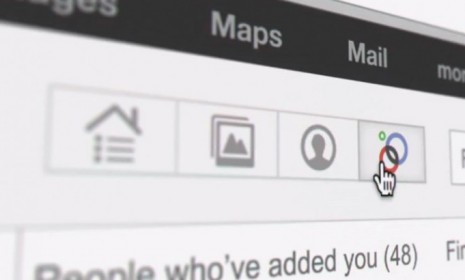Why Google+ has taken off: 5 theories
In less than three weeks, the new social network has reportedly won over a whopping 10 million users. Here's how it is seducing America

A free daily email with the biggest news stories of the day – and the best features from TheWeek.com
You are now subscribed
Your newsletter sign-up was successful
It's been less than three weeks since the launch of Google+, and the fledgling social network has reportedly already gathered 10 million users. It "might be one of the fastest-growing networks ever," says Stan Schroeder at Mashable. Google's previous attempts at social networking, Wave and Buzz, failed massively. Why is Google+ seemingly succeeding? Here, five theories:
1. Google+ lets us restart our digital lives
"Google has created the opportunity for Facebook-weary people to perform what one called 'a reset on Facebook,' allowing them to escape from Facebook members they've friended over the years but don't really want to interact with — and can't quite bring themselves to defriend," says Paul Boutin at Technology Review. Yes, says Dominic Basulto in The Washington Post. Google is betting that "all of us, to one degree or another, would love to press 'reset' on our social lives."
The Week
Escape your echo chamber. Get the facts behind the news, plus analysis from multiple perspectives.

Sign up for The Week's Free Newsletters
From our morning news briefing to a weekly Good News Newsletter, get the best of The Week delivered directly to your inbox.
From our morning news briefing to a weekly Good News Newsletter, get the best of The Week delivered directly to your inbox.
2. People love the Circles feature
"I've found solace" in the way Google+ let you organize your friends, says Nick Bilton in The New York Times. You place your online pals in different "Circles," be it co-workers, best buds, or crazy aunts. Then you can target what you share to a specific Circle, so you don't have to worry about your co-workers seeing those endearingly compromising photos you shared with your best buds. Admittedly, Facebook has tools to organize friends, too, but Google+ simplifies it dramatically.
3. There are no friend requests
"The killer feature of Google+ is that, unlike Facebook, LinkedIn, or most other social networks, there's no such thing as a friend request," says Boutin. People can add you to a Circle, and you can add them to a Circle, but opting out is a softer process than snubbing someone by directly refusing his Facebook friend request. That eliminates a lot of anxiety. "You'll never be put in the awkward situation of receiving a friend request from someone you don't really want to be Google+ friends with."
A free daily email with the biggest news stories of the day – and the best features from TheWeek.com
4. It has an aura of exclusivity
Google launched its new social network by first putting it in the hands of techies and social media celebrities, and then allowing others to join only by invite. That strategy worked. "I think Google is playing the 'exclusive club' card very well with Google+," says tech analyst Dan Olds, as quoted by Computer World. "It's really helped them create some buzz."
5. Google+ learned from Facebook's mistakes
"Google+ makes Facebook look like a complex, bloated piece of junk," says Charlie Sorrel at Wired. Sharing photos, for instance, has suddenly become easy and straightforward. Indeed, in many ways, "Google has taken everything that's wrong with Facebook… and fixed it," says Basulto. But, "at the end of the day, the ultimate success of Google+ will not be due to superior technology… It will be due to a superior knowledge of sociology and psychology," and whether Google can convince us all to ditch Facebook for Google+.